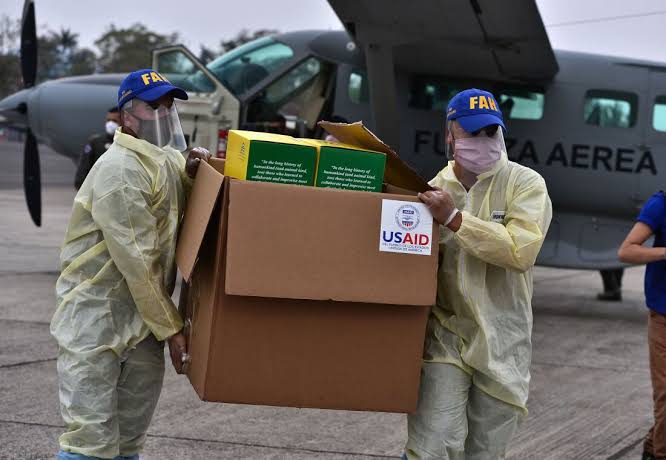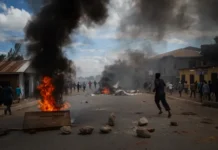Former President Uhuru Kenyatta’s comments on the new Donald Trump directives, which have seen the new US President issue halt aid to foreign countries, have continued to elicit reactions from all around the world.
Billionaire Elon Musk, who also heads Trump’s Department of Government Efficiency (DOGE), is the latest powerful figure to react to Kenyatta’s statement.
Taking to X, Elon reacted to the Uhuru remarks by simply remarking: “Good for him!”
However, a select group of research are set to suffer significant set backs due to the aid cuts
AMPATH Kenya, a pivotal health collaboration between Moi University, Moi Teaching and Referral Hospital, and Indiana University, is among the first to feel the sting of the recent U.S. government directive halting aid to global health projects.
In response to a policy update issued by the Trump administration, AMPATH Kenya has ordered all administrative staff to immediately take their accrued annual leave, marking the beginning of a challenging period for both healthcare workers and the broader aid community.
The U.S. Agency for International Development (USAID) recently announced a 90-day Stop Work Order impacting various key projects, including the Fahari ya Jamii initiative.
The order, which took effect on January 31, 2025, suspends all activities under USAID-supported programs, including crucial HIV, malaria, and tuberculosis relief efforts in Kenya.
This order directly affects programs under the Tujenge Jamii umbrella, with personnel in regions like Kajiado, Kiambu, and Nairobi counties among those facing an immediate freeze on their work.
In a wider context, the decision to pause these initiatives aligns with a broader review process mandated by the Trump administration’s new foreign aid policy.
The pause on funding comes after a series of policy changes since Trump’s inauguration on January 20, 2025, which has seen a halt to the supply of lifesaving medications and resources for some of the world’s most vulnerable populations.
USAID contractors and partners, including those working on health, education, and development programs, are now left scrambling as this review could last up to three months.
The suspension also leaves hundreds of aid workers, field personnel, and community support staff in a precarious situation.
Many have already been instructed to go on unpaid leave, with little to no information on how the three-month suspension will affect their employment status in the long run.
While many health initiatives had been ramping up efforts in the fight against diseases like malaria and HIV/AIDS, these sudden freezes have introduced a major disruption that could set back years of progress.
In Kenya, where over 1.5 million people live with HIV and where malaria remains one of the top killers, the consequences are especially alarming.
Fahari ya Jamii, a USAID-supported project, provides essential health services and community engagement that were set to continue throughout 2025.
However, with this unexpected suspension, tens of thousands of families may lose access to life-saving medications, education, and support networks built through these programs.
International aid organizations have voiced their concerns, noting that such disruptions may lead to a rise in preventable diseases, a setback in the fight against poverty, and potentially catastrophic impacts on those who rely on foreign aid for their survival.
Global health leaders have called for urgent reevaluations of the policy, urging the U.S. government to consider the long-term consequences of these actions on the world’s most vulnerable populations.
The three-month freeze is only the beginning of what could become a prolonged disruption in global health and aid systems.
As U.S. foreign aid undergoes a complete reevaluation under the new policy, organizations like AMPATH Kenya and other partners will need to adapt quickly, finding ways to continue their work in the face of uncertainty.



















